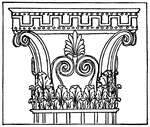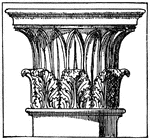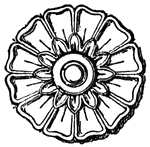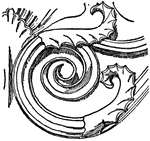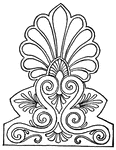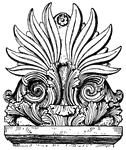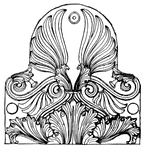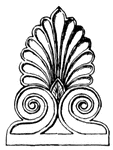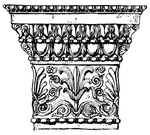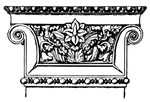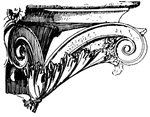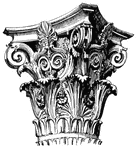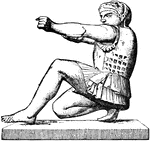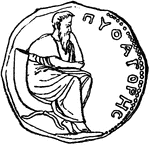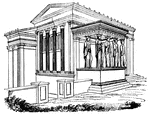
Caryatic Order
An order of architecture wherein the entablature is supported by female figures clothed in long garments,…

Glis
"Described as being five inches long, with a tail four inches, and found in Greece, Italy, Spain, France,…

Accubation
"The act of lying or reclining; specifically, the ancient practice, derived from the Orient, of eating…

Agrenon
"A net-like woolen garment worn by bachanals and soothsayers in ancient Greece. Image: Toso of Apollo…
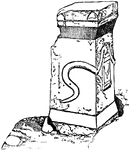
Greek Altar
"Round, triangular, or square in plan, often elaborately adorned with sculpture, and bearing inscriptions."-Whitney,…
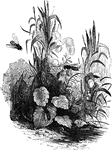
Honey Bee
"They are said to have originated in Greece, but have since spread all over the world; they live in…
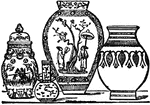
Chinese, Japanese and Indian Vases
"A Vase is a vessel of various forms and materials, applied to the purposes of domestic life, sacrificial…

Grecian Vases
"A Vase is a vessel of various forms and materials, applied to the purposes of domestic life, sacrificial…
Tragedy masks
"Tragedy masks. The origin of Greek drama is to be found in the yearly celebrations in honor of Dionysus,…
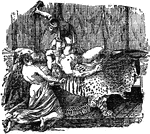
Man with ax
"Who brandishing aloft the ax of doom, That just has laid one victim at her feet, Looks round her for…
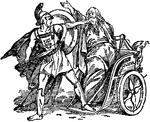
Death of Laius
"When grown up, Oedipus is told by the oracle that he would slay his father and marry his mother. On…

Thesus and the Minotaur
"Thesus and the Minotaur. (From a vase-painting in the Vatican Museum.) — The Delphian Society,…
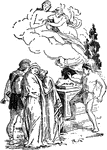
Rescue of Iphigenia
"When she was about to be slain at the altar, Artemis intervened and carried her off in a cloud to be…
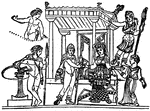
Iphegnia delivers letter to Pylades
"What in this letter is contained, what here, Is written, all I will repeat to thee, That thou mayst…
Comedy masks
"While Greek tragedt grew farther and farther away from the humor and burlesque so characteristic of…

Greek philosophers
"Greek Philosophy, which reached its highest excellence in Athens in the fourth century before Christ,…
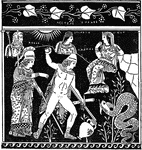
Cadmus and the Dragon
"Cadmus and the Dragon. (From a vase-painting at Naples.)" — The Delphian Society, 1913

Pericles
"So long as Pericles stood at the head of Athens in time of peace, he governed it with moderation and…

Ancient Athens
"The mosted noted of the orations of Isocrates is the Panathenaicus or Panegyric of Athens, a work on…
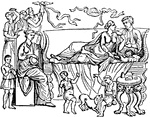
Accubatio
"The act of reclining at meals. The Greeks and Romans were accustomed, in later times, to recline at…

Aeschines
"Aeschines owes the perpetuity of his fame to the fact he was the only rival of Demosthenes. He was…

Demosthenes
"In the oratory of more thn two thousand years Demosthenes stands in the front rank, and will always…

Alcaeus
"Besides Sappho, her friend, perhaps lover, Alcaeus is almost the sole representative of the Aeolic…

Anacreon
"Though Anacreon has been famous as the poet of wine and love, few geniune fragments of his songs have…

Theocritus
"The fame of Theocritus, the prince of bucolic poetry, depends on his faithful pictures of natural scenery…
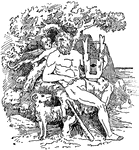
Polyphemus
"Theocritus asserts that there is no rememdy for Love but the Muses. He then gives an account of the…
